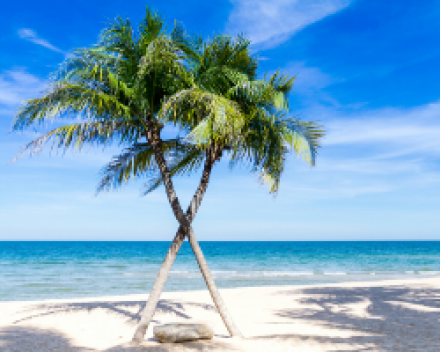Diving in Vietnam
2Whilst not on a par with the Red Sea of the Galapagos Islands, Vietnam has three good locations for scuba diving: Nha Trang, Whale Island (about 80km north of Nha Trang), and Phu Quoc Island. The emerging sites include Cham island near Hoi An and Con Dao island in the South.
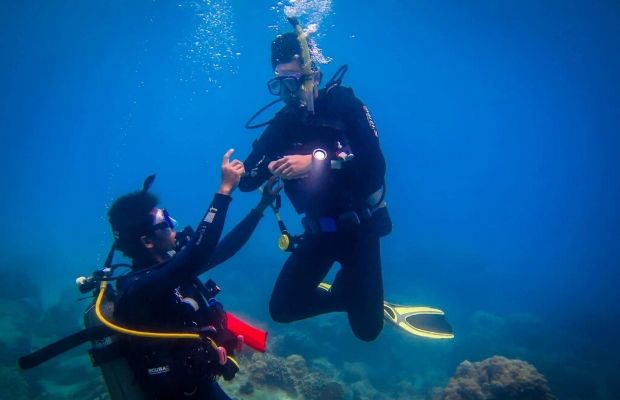
Nha Trang Bay can offer a range of diving experiences and courses. There are several dive sites providing opportunities for wall diving, deep diving down to 50m and ‘swim-throughs’, in addition to more straightforward diving. Unfortunately, wreck diving is not possible because there are none with visiting! Most dive sites are within an hour by boat, and a 200HP outboard speedboat is available for executive diving and private charter.
There are around 400 species of hard and soft coral in Nha Trang Bay, making it one of the most diverse coral ecosystems in the world. Moray eels, manta rays, large stingrays and turtles are also to be seen, and there are several rare species to interest enthusiasts.
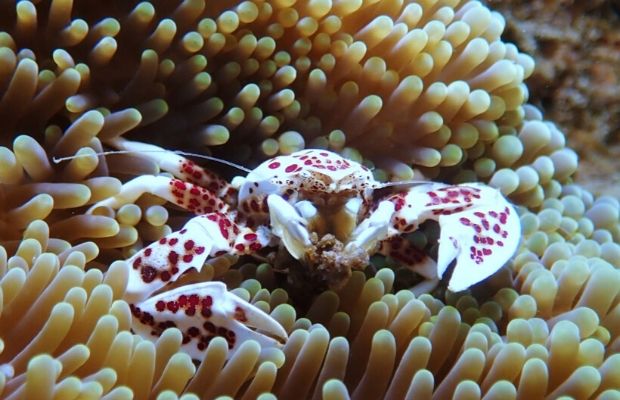
Whale Island, at the extreme north of the bay, offers very safe beach diving to 15m. More advanced diving includes wall diving to 40m, coral gardens at 15m, and racing drift dives. Whales and sharks are occasional visitors.
The normal visibility underwater is between ten and thirty meters and the water temperature varies between 22 °C and 30°C. However, towards the end of October, the rainy season begins in the Nha Trang area, washing large amounts of sediment into the bay and turning the water into the brown soup. The rain usually lasts until the end of December, but the water doesn’t clear until the latter part of January. Prospective divers thinking of visiting around the near the rainy season are welcome to contact us for an on-the-spot situation report.
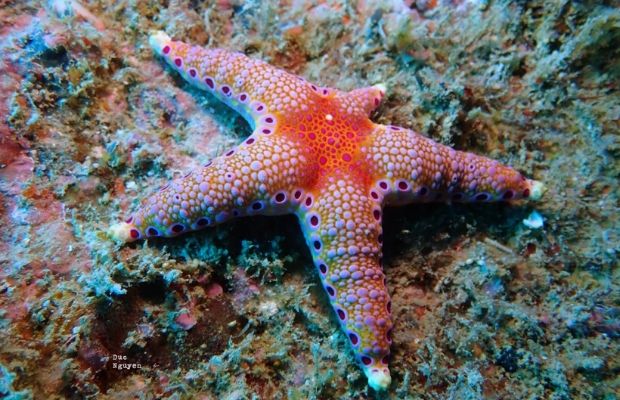
Fortunately, when Nha Trang is out of commission, Phu Quoc is at its best, making diving in Vietnam an all-year-round activity. There, the rainy season lasts from mid-May to mid-November. The center is new and developing, so there are opportunities to explore new areas. The coral is pristine, and the scattering of small islands at the bottom of Phu Quoc is home to a rich variety of marine bio-diversity. Although there are very few large pelagic species, dugongs have been sighted from time to time.
Fortunately, when Nha Trang is out of commission, Phu Quoc is at its best, making diving in Vietnam an all-year-round activity.
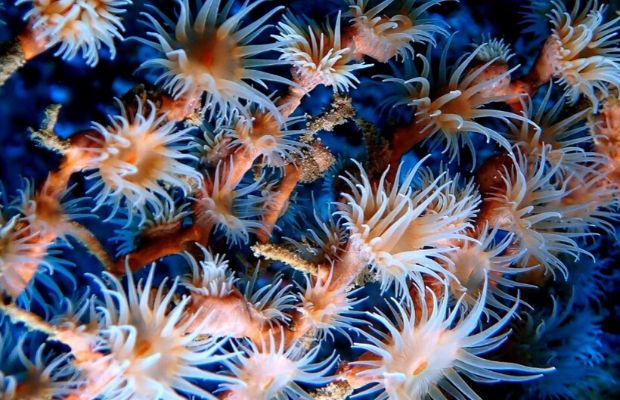
Recently, two new dive sites have appeared. The Con Dao archipelago off the southeast coast adjacent to Vung Tau supports a high level of biodiversity - over 1300 marine species have been identified so far! It’s rich in coral species and reef fish. Turtles and dolphins are common sightings, and there’s even a chance to encounter a dugong!
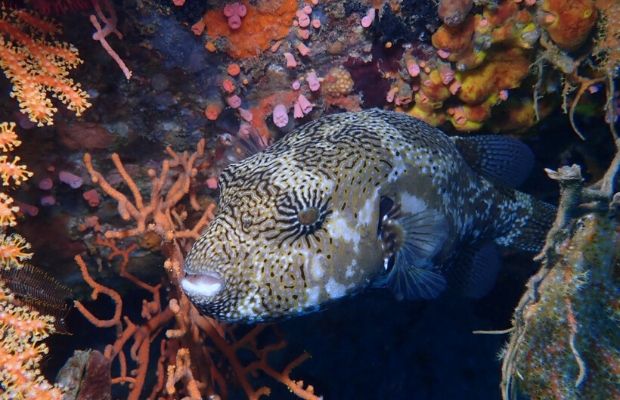
Dive centers in Hoi An offer a daily dive trip to the nearby Cu Lao Cham Marine Park, some 25 minutes by speedboat. The Marine Park comprises eight islands that are home to 155 species of corals, 202 species of fish, 4 species of lobster and 84 species of mollusks.
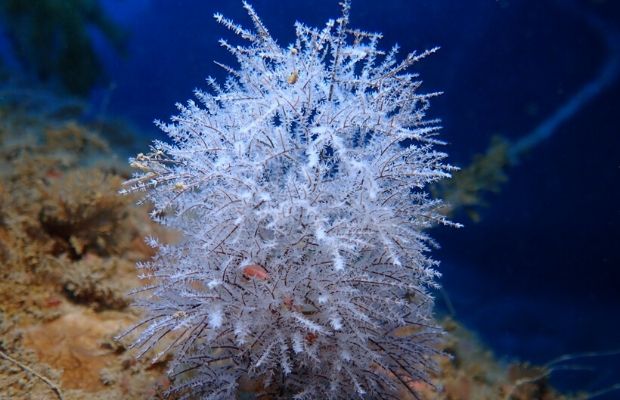
A company called ‘Rainbow Divers’ pioneered diving in Vietnam. It is now the largest operator in the country and has diving centers at each location. The main center is in Nha Trang. The Course Director is a highly qualified Instructor Trainer for PADI, EFR and DAN courses, and is assisted by a Master Instructor, a Master Scuba Diver Trainer, two Staff Instructors, and four Instructors. The team is made up of several nationalities: Australian, English, French, Irish, Japanese, Swedish, and Vietnamese. In addition to those languages, training can be delivered in German and Italian as well. The Dive team also includes six highly experienced Assistant Instructors.
The center can call upon the services of a qualified doctor who is also a Divemaster. A decompression chamber is available in Nha Trang but has never been necessary.
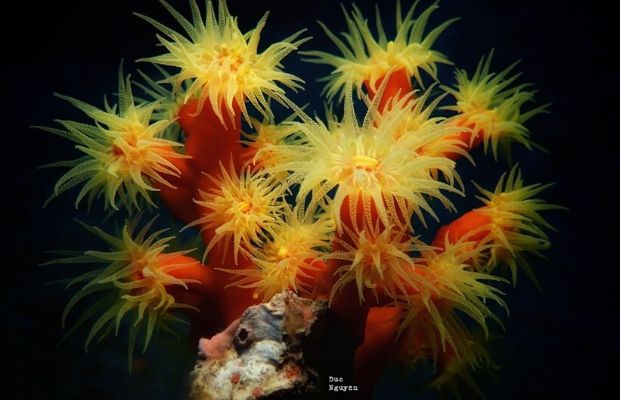
‘Rainbow Divers’ is the only Five Star PADI Diving Centre in Vietnam, has first-class facilities, a highly qualified team of instructors and trainers, and an excellent safety record. For these reasons, Handspan recommends them to its customers. Although we are happy to book diving and/or training packages in advance, we prefer customers to book and pay locally so that they can take account of the conditions. The cost will be the same either way – we don’t ask for, or receive, commission for such services.
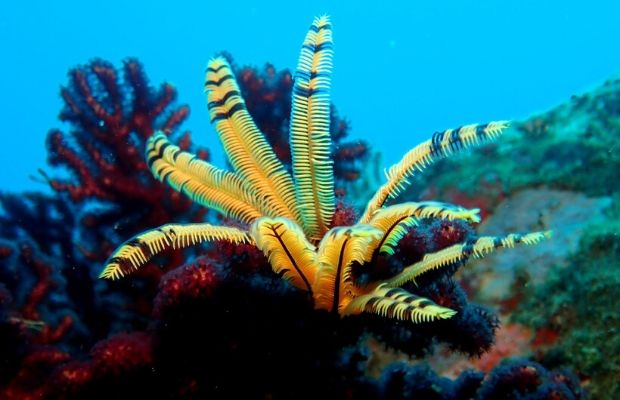
Photo courtesy: Special thanks to our friend Duc Nguyen for sharing his great pictures. Duc is a famous divemaster and instructor in Nha Trang.
__logo.png)
__hanoi-water-puppets.jpg)
__angkor-wat-blue-reflections.jpg)
__vientiane-buddha-park-monks.jpg)
__bagan-dhammayazika-dusk.jpg)
